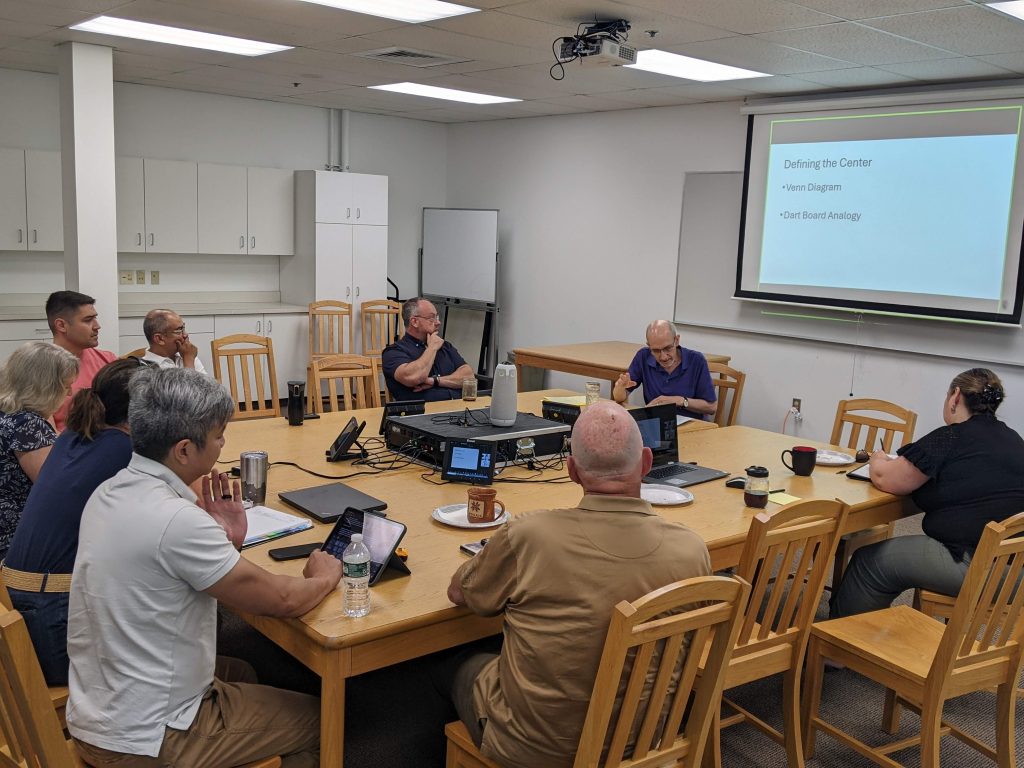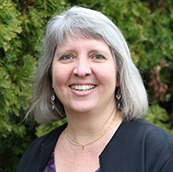by Marta Castillo
In a scattered, distracted, and diverse world, we value being centered. A centered person is focused, balanced, and grounded–mentally, emotionally, and spiritually. As we center ourselves, we connect with an essential, internal, and authentic self in the present moment. We do this through spending time with God in prayer, silence, reading Scriptures, Sabbath rest, and in community. Centering helps us find peace in chaos by quieting our minds and making space for grace.
For the thirty years that I attended Nueva Vida Norristown (PA) New Life–a culturally, theologically, and economically diverse body of believers–we survived and thrived because we centered ourselves on God’s vision for us: to worship the Lord in unity; to experience the transforming and gifting power of the Holy Spirit; and to proclaim the gospel of reconciliation through Jesus Christ in word and deed. We had so many differences, but we centered ourselves on God and on our relationships with one another to be a witness and a community.
In June, the Mosaic Mennonite Conference Leadership Ministers met with Mark Baker, the author of Centered-Set Church. Our conversation focused on the challenges and opportunities of maintaining a centered approach within a conference composed of diverse congregations with varied identities and beliefs. We reflected on Mosaic’s experience accompanying these congregations and the importance of creating a centered vision that can hold us together while offering grace and manageability.

Mosaic’s vision and mission–and our three priorities of missional, formational and intercultural transformation–are part of the center that we can continue to develop. We discussed centered-set concepts in Mennonite theology including from the Anabaptist Essentials: Jesus as the center of our faith; community as the center of our life; and reconciliation as the center of our work.
The group explored how different congregations and ministries define their center. Some long for clear boundaries and others desire a more centered approach. We acknowledged tensions between maintaining unity and making space for diverse beliefs. We affirmed the need for grace margins, for discernment, and for time and trust to work with differences. We asked: How do we balance necessary boundaries with room for interpretation and transformation? How do we approach future dialogue and collaboration?
Mosaic Mennonite Conference is a young organization, shaped by old and new elements, navigating rapid change —experiencing both loss and growth in relationships and membership, while facing upheaval in the world around us. Let’s continue the conversation on what center we need to have to live into our vision together to “embody the reconciling love of Jesus in our broken and beautiful world.”
Listen to Dr. Mark Baker (part one and part two) to learn more about Centered-Set Church.

Marta Castillo
Marta Castillo is the Associate Executive Minister for Mosaic Conference.
Mosaic values two-way communication and encourages our constituents to respond with feedback, questions, or encouragement. To contact Marta Castillo, please email mcastillo@mosaicmennonites.org.
The opinions expressed in articles posted on Mosaic’s website are those of the author and may not reflect the official policy of Mosaic Conference. Mosaic is a large conference, crossing ethnicities, geographies, generations, theologies, and politics. Each person can only speak for themselves; no one can represent “the conference.” May God give us the grace to hear what the Spirit is speaking to us through people with whom we disagree and the humility and courage to love one another even when those disagreements can’t be bridged.
